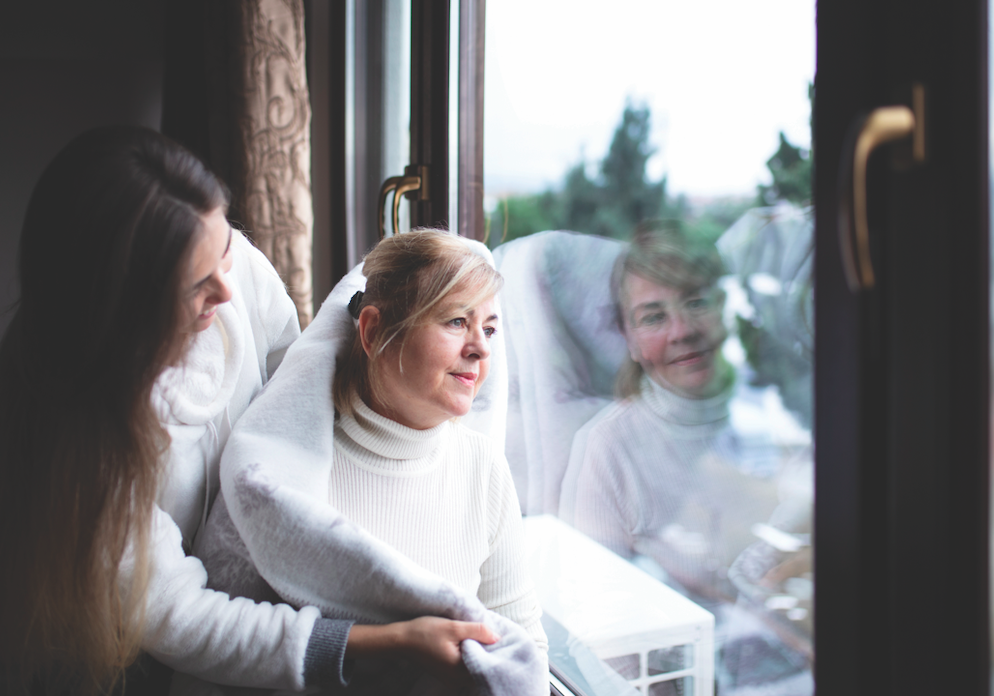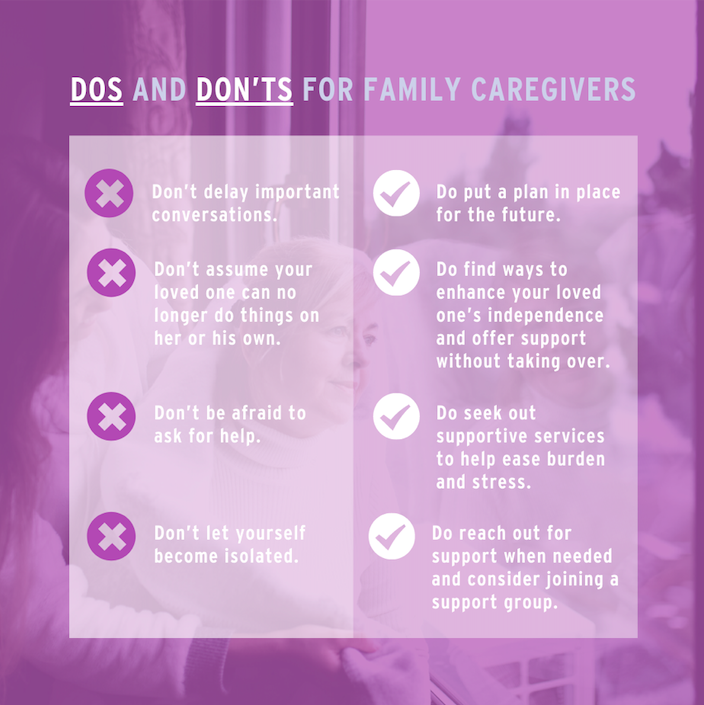What to Expect After Your Loved Ones Receives a Dementia Diagnosis
by Lakelyn Hogan for Women's Brain Health Initiative:
Receiving a diagnosis of Alzheimer’s disease or another type of dementia can bring mixed and complex emotions. For some, it may be a relief that there is finally an explanation for symptoms. For others, it may trigger fear and/or anxiety about the unknowns that lie ahead. For those providing care and support to individuals with a new diagnosis, it is difficult to know what to expect. The following article provides some helpful tips and insights for caring for a loved one with dementia.
There is a lot to learn.
If you are a first-time caregiver, there will be a learning curve. It is important to realize that dementia is a progressive disease that causes the brain to fail over time. You will want to learn more about the disease progression, symptoms, and dementia-related behaviours that can result.
Most importantly, you will want to discover the best approach for supporting your loved one to help maintain her or his dignity and respect.When searching for information, be sure to seek out reputable sources for information such as the Alzheimer Society of Canada, HelpForAlzheimersFamilies.ca, or Womensbrainhealth.org.
The journey is different for everyone.
While there are common dementia-related behaviours and symptoms, individuals experience dementia differently. People move through the early, middle, and late stages of the disease at varying rates. On average, a person lives four to eight years after a diagnosis, but others can live as long as 20 years with the disease. It is important for caregivers to understand where their loved one is in the disease process.
Plan ahead.
It is critical to do as much planning as possible in the early stages of dementia. This provides your loved one with an opportunity to make her or his wishes known. Planning ahead also helps family caregivers understand the options for care and will allow for informed decision making along the way.
Create a support system.
The demands of caregiving may be overwhelming at times. It is important to identify your support system early. Support can come from family, friends, neighbours, your faith community, and/or professional services, such as in-home care. Those in your support system may directly help with the care of the individual living with dementia and also support you as the caregiver.When people ask how they can help, keep a few ideas on hand.
For example, let a friend pick up your children from school or ask a neighbour to reach out the next time she or he goes grocery shopping. Another way to find support is by joining a support group (in-person or online) to connect with people who are going through similar experiences.
Find a healthy outlet for emotions.
Emotional highs and lows are a normal part of the caregiving journey. There may be days when you are feeling frustrated, resentful, and guilty. Other days you may experience joy, happiness, and contentment. Do your best to accept your emotions for what they are and try not to judge your feelings. Find a healthy way to release your emotions. Consider journaling your feelings, or talking to a family member, friend, and/or mental health professional. Yoga, meditation, and exercise are also great ways to release emotions and boost your overall mood.
Be an advocate.
As a caregiver, you will likely accompany your loved one to medical appointments, assist with paperwork, and help arrange support services. During these activities, you may find the need to advocate on behalf of your loved one to ensure that her or his unique needs are being met and that hers or his voice is being heard.
Remember, you know your loved one best and you can be a champion for her or his well-being.
Prioritize self-care.
If you do not take care of yourself, you will not be able to be the best caregiver that you can be. Find opportunities to step away from the caregiving situation. Ask a family member, friend, or neighbour to provide temporary care while you tend to your own physical and emotional needs. You can consider hiring a professional care provider to give you a break and time to recharge, and there are respite grant programs available. More information can be found at HelpForAlzheimersFamilies.ca.
While a new diagnosis often leaves families with more questions than answers, it is important to know that you are not alone.Millions of family caregivers are going through a similar experience. The good news is that there are numerous resources and support to help you along the way. For more tips on navigating the challenges of caregiving, visit CaregiverStress.com.
Lakelyn Hogan, MA, MBA, is a Gerontologist and Caregiver Advocate, Home Instead Senior Care®
Source: MIND OVER MATTER V10


